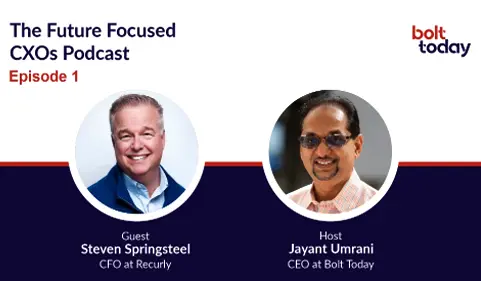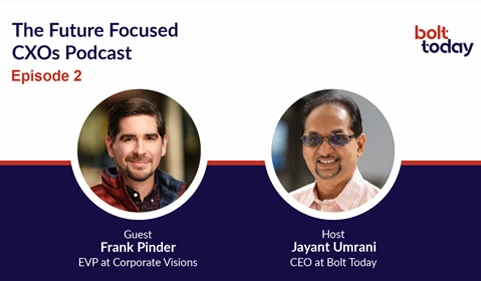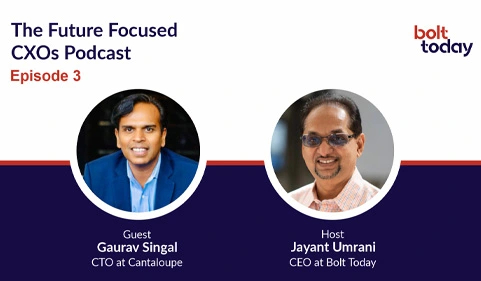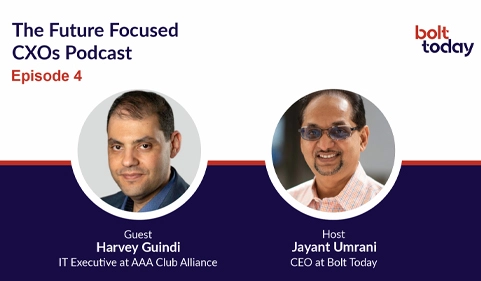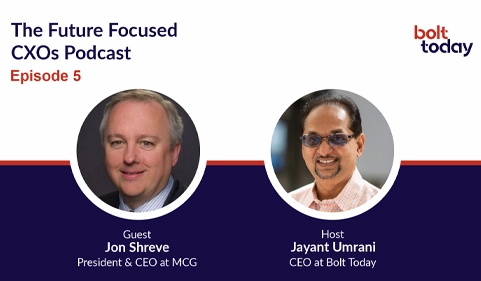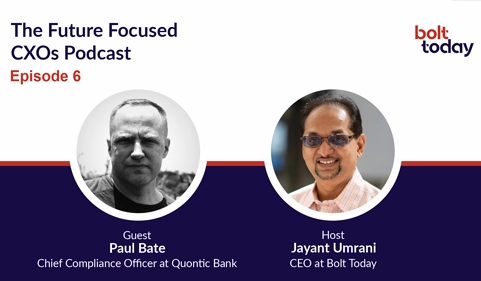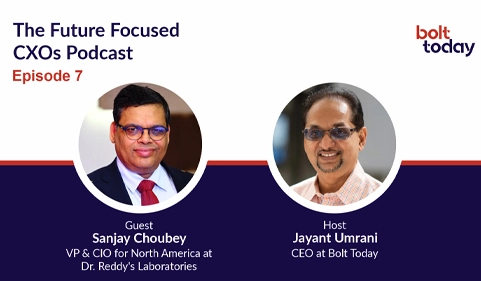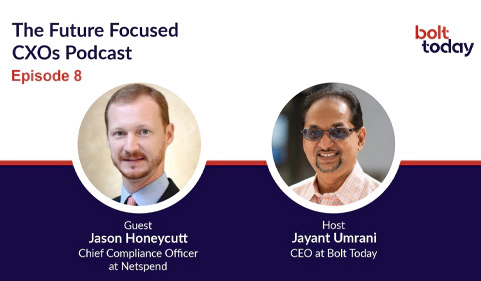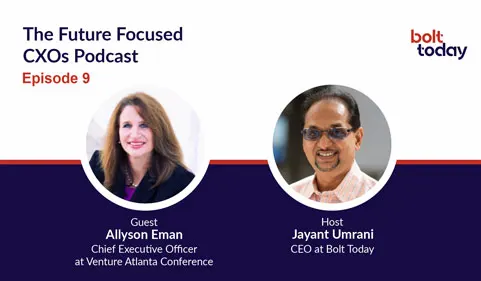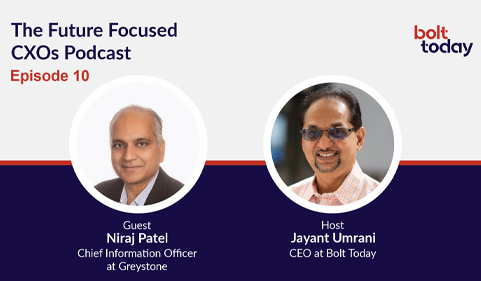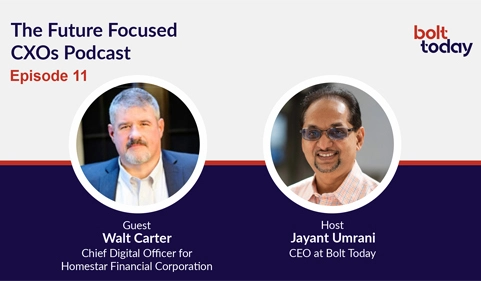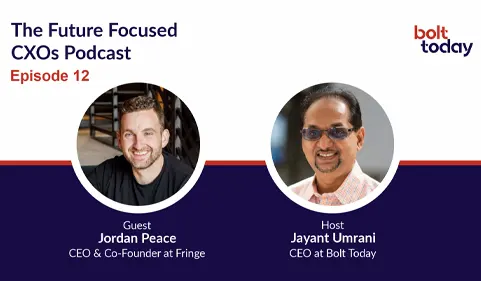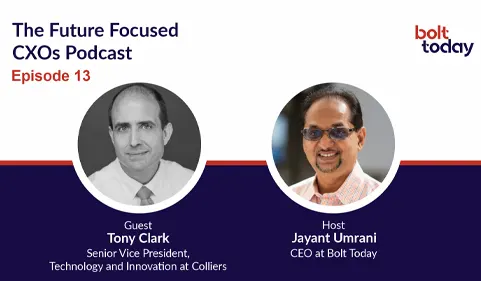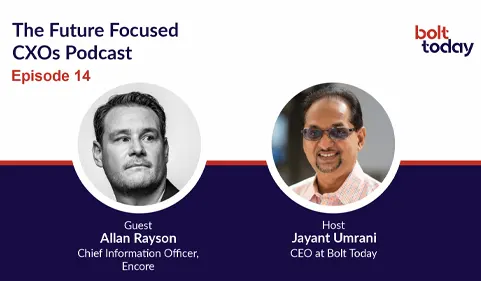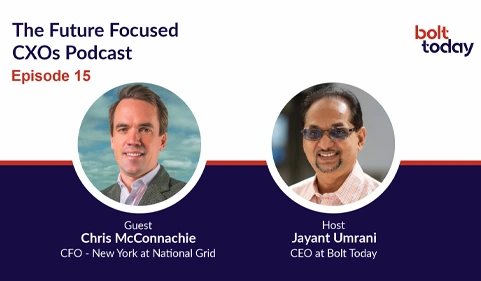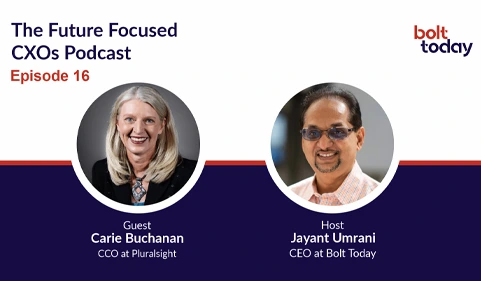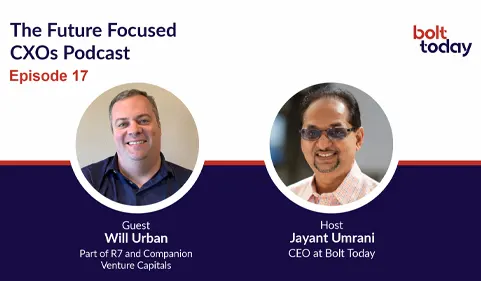Discover the winning strategies used by top CXOs to drive growth in their companies, even in the toughest of times! Join us on this must-listen podcast as we learn from the best in the business world.
In this episode, we'll hear from Niraj Patel, Chief Information Officer at Greystone. He has worked in leadership roles including Chief Strategy Officer, CIO, Board Member, Adjunct Professor, co-founder, Diversity & Inclusion Champion, and president. Let's learn from him about technology, operations, business ecosystems, and innovations.
Tune in to Engaging Conversations and Insights!
Topics Discussed
3:45 - During COVID, organizations, including Greystone, had to rapidly adapt to new ways of using their assets, whether it be capital, real estate, or technology. Remote work became the norm, changing how people utilized spaces like apartments. The shift necessitated improvements in infrastructure, lighting, and connectivity.
Human connections became vital, as individuals sought advice and collaboration in navigating the sudden technological changes. The experience of transitioning between corporate and startup roles provided valuable insights into multifaceted problem-solving and empathy for different roles within the organization, especially during the challenging times of COVID.
6:52 - The key to our technological adaptation during this period was not a single solution but a combination of various tools and approaches. We considered digital keys for apartment access, virtual walkthroughs, enhanced payment systems, and improved connectivity options. Greystone's diverse operations, including lending, property ownership, and management, allowed us to understand and cater to the unique needs of apartment residents.
There was no one-size-fits-all solution; rather, it was like assembling a Happy Meal, where different components came together to enhance the overall experience for employees and customers.
8:55 - When I started as a CIO in a relatively new industry—commercial mortgage-backed securities—I had the opportunity to engage in corporate entrepreneurship within a larger enterprise, specifically a division of General Motors.
My mentors have guided me throughout my career, helping me understand the importance of delivering value. I learned that if my internal customers didn't see the value, I couldn't create software that others would want. These corporate experiences equipped me with skills that proved invaluable when I ventured into the startup world. Understanding the intricacies of acquisitions, capital usage, and the perspective of venture capitalists became critical.
11:27 - Mentors play an evolving role in one's life. Different mentors offer varying advice based on the stages of your journey. Mentors can come and go, and some lessons are learned unintentionally. It's crucial to keep an open mind and a desire to learn from various interactions.
I'd like to share another mentorship experience with Pete Musser, who was instrumental in the venture capitalist community in Philadelphia. He taught me the importance of people and value over technology.
15:15 - The overarching message is that AI isn't replacing jobs but enhancing them. We must collaborate with technology, recognizing that it learns from us as we learn from it. It's a bidirectional relationship, unlike the past where software had to be programmed. This shift in mindset is transformative.
The fear that AI will replace humans is unfounded. Adoption is unique to individuals, and we must understand their needs and excite them about technology's potential to improve their lives. It's not about imposing a technology solution but finding the right use cases that resonate with individuals.
21:22 - The key is to be human, build real relationships, seize opportunities to create value, communicate effectively, and be open to continuous learning. It's not just about who you know but who knows you and can help when needed. Your career should be viewed holistically, not just as a job.

